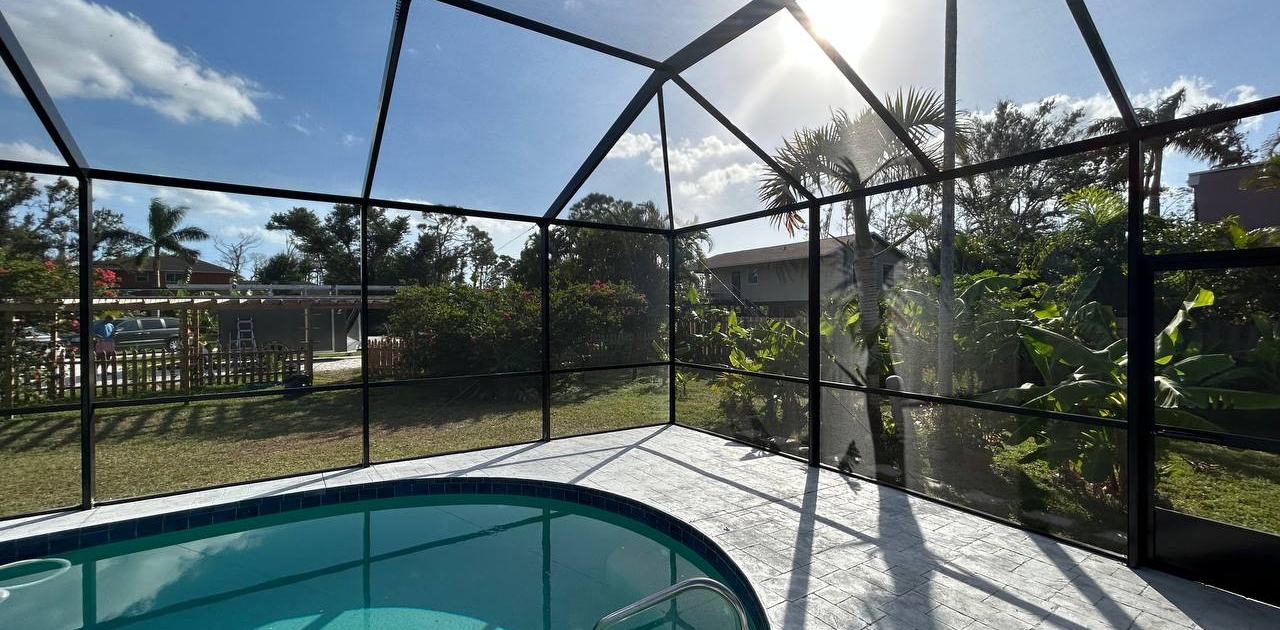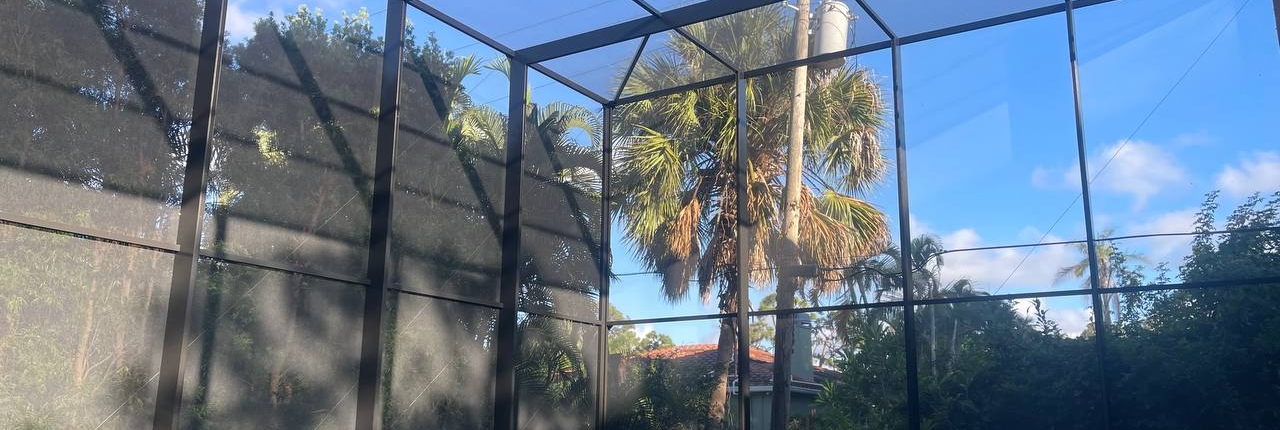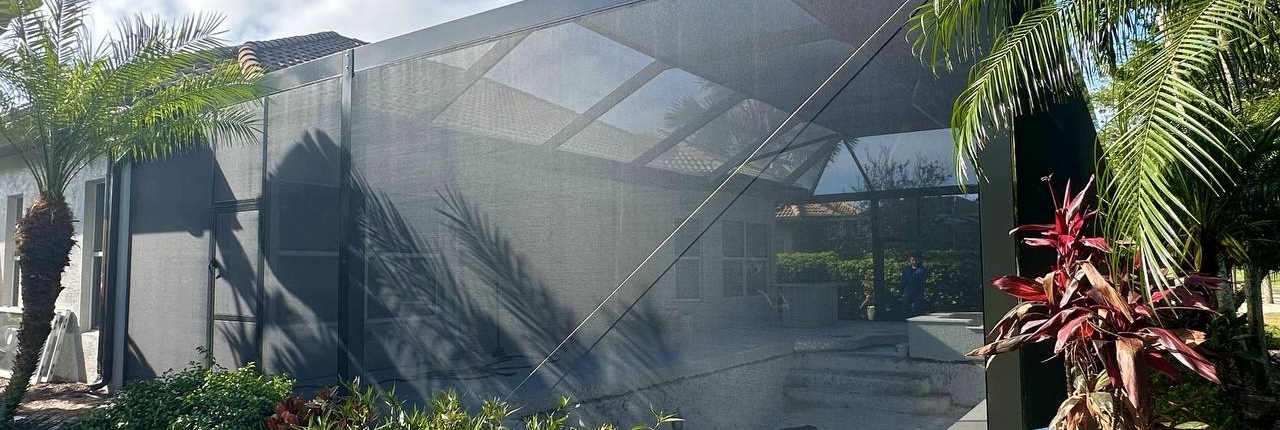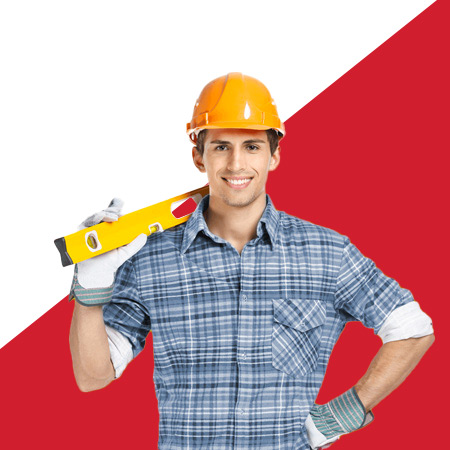Comparing different materials for screen enclosures
When you are adding a screen enclosure to your outdoor space, the choice of materials is critical. Screen enclosures are usually made from different types of metal, each offering different benefits like strength, weight, and resistance to rust. At Screen Factory Florida, we take pride in using only high-quality aluminum for our screen enclosures, ensuring long-lasting performance and a sleek appearance. Today, we will share information about different materials used for screen enclosures, their advantages and characteristics.
Frame materials
There are several materials that can be used for screen enclosure frames, including steel, wood, and aluminum. Steel is strong but can rust over time, especially in humid climates like Florida. Wood has a natural look but requires a lot of maintenance and can rot or warp in wet conditions. Aluminum is the most popular choice for screen enclosures because it’s strong, lightweight, and doesn’t rust easily. This makes it perfect for Florida’s humid weather. Unlike steel, aluminum doesn’t corrode, and unlike wood, it doesn’t require frequent upkeep. Plus, aluminum comes in different thicknesses and finishes, so you can choose the look and feel that best suits your style and budget. Whether you want a smooth or textured finish, we have options to match your needs.
Screen mesh options
The choice of screen mesh depends on the client’s preferences. Some people want maximum privacy, while others prefer to enjoy the open view from their pool or patio. Different meshes offer varying levels of visibility, durability, and protection. Here are some of the common options we provide:
- Regular: This is a standard screen that keeps out insects while letting in fresh air and sunlight. It’s a good, affordable option for most people.
- No See Um: This mesh has a tighter weave, which blocks tiny bugs like gnats. It’s great if you live near water or in areas with lots of small insects.
- SuperScreen: This type of mesh is extra strong and resistant to tears. It’s perfect for areas with strong winds or storms, and it lasts longer than regular mesh.
- Pet Screen: This mesh is thicker and more durable, making it ideal for homes with pets. It can withstand damage from claws, so your screen stays intact even with active pets.
- Florida Glass: This mesh has a laminated layer for privacy while still letting in light. It’s also water-resistant, which is great for pool areas where you need privacy and protection from the elements.
Types of anchors
Anchors play a crucial role in the stability of your screen enclosure, just like the frame and mesh. But unlike the screen mesh, replacing anchors is much more challenging, so choosing high-quality anchors from the start is essential to ensure your screen enclosure is not only strong but also built to last. Anchors come in different types, but the most popular are galvanized and stainless steel. Galvanized anchors have a zinc coating that protects against rust, making them ideal for outdoor use. Stainless steel anchors are even more durable and resistant to corrosion, offering long-lasting performance, so your enclosure stays firmly in place, even in bad weather.
Conclusion
Choosing the right materials for your screen enclosure is essential for creating a space that meets your needs and lasts for years. By choosing durable aluminum frames, the right screen mesh for your lifestyle, and reliable anchors, you can enjoy a beautiful and functional outdoor space that stands the test of time. Contact us today to discuss how we can help you create the perfect screen enclosure for your home.








